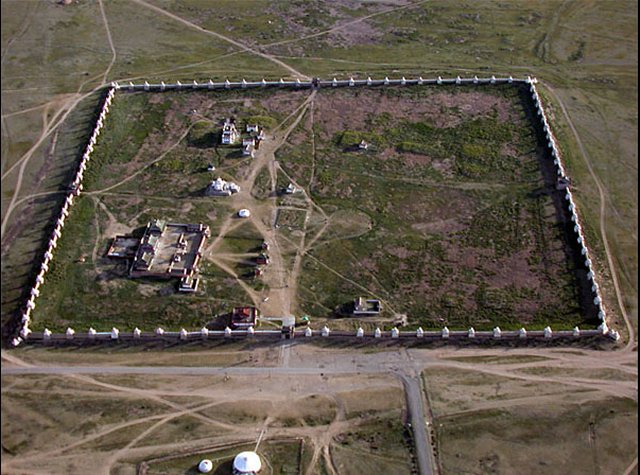MessageToEagle.com – Gold coins belonging to the era of legendary Genghis Khan have been discovered in the ancient capital of Karakorum (Qara Qorum) in Mongolia along with several items made of coral, pearl and turquoise.
Genghis Khan founded Karakorum in 1220. After his exploits on the Eurasian steppes, the city became the center of a substantial and growing empire.
Karakorum lies 360 kilometers southwest of Ulan Bator, on Mongolia’s main east-west route.
The city has been razed several times since Genghis Khan’s day. But in Mongolia, Karakorum remains a powerful symbol of past glory.
The excavations in the area have been conducted over the past 15 years and now archaeologists of the Mongolian-German Karakorum Expedition have displayed the findings preserved in the Karakorum museum.

During the excavation works performed in 2014 in the ancient capital Karakorum by the expedition, many interesting findings including gold coins of Genghis Khan’s era were unveiled,” reports Business standard.

“A consecrated placement of relics in a stupa to Khans of the 13th century was found underneath the entrance stand of the temple named ‘Great temple of Tsogt’,” archaeologists were quoted as saying by Mongolian news agency Montsame.
The consecrated placement consisting of nine treasures wrapped in silk, crop and fruit was put inside a big vase with clay cap.
Treasures were represented by two gold coins, three silver coins and several items made of coral, pearl, turquoise, copper and steel.
See also:
Karakorum – Genghis Khan’s Headquarters And Important City In History Of Silk Road
Mysterious Standing Deer Stones Of Mongolia – Their Purpose And Creators Remain Unknown
Sir Marc Aurel Stein: Famous Fascinating Expeditions To Ancient Places Of The Silk Road
One of the two gold coins is made in Samarkand and belonged to the Genghis Khan period while silver coins were made during the Mongke Khan rule.
The archaeologists from Mongolia and Germany are now preserving these artifacts in the Karakorum museum for further research.
A project has already begun for the construction of an open museum for preserving the archaeological remains of the temple.
Genghis Khan was the founder and emperor of the Mongol Empire that existed during the 13th and 14th centuries and became the largest contiguous empire in history after his demise.
MessageToEagle.com






